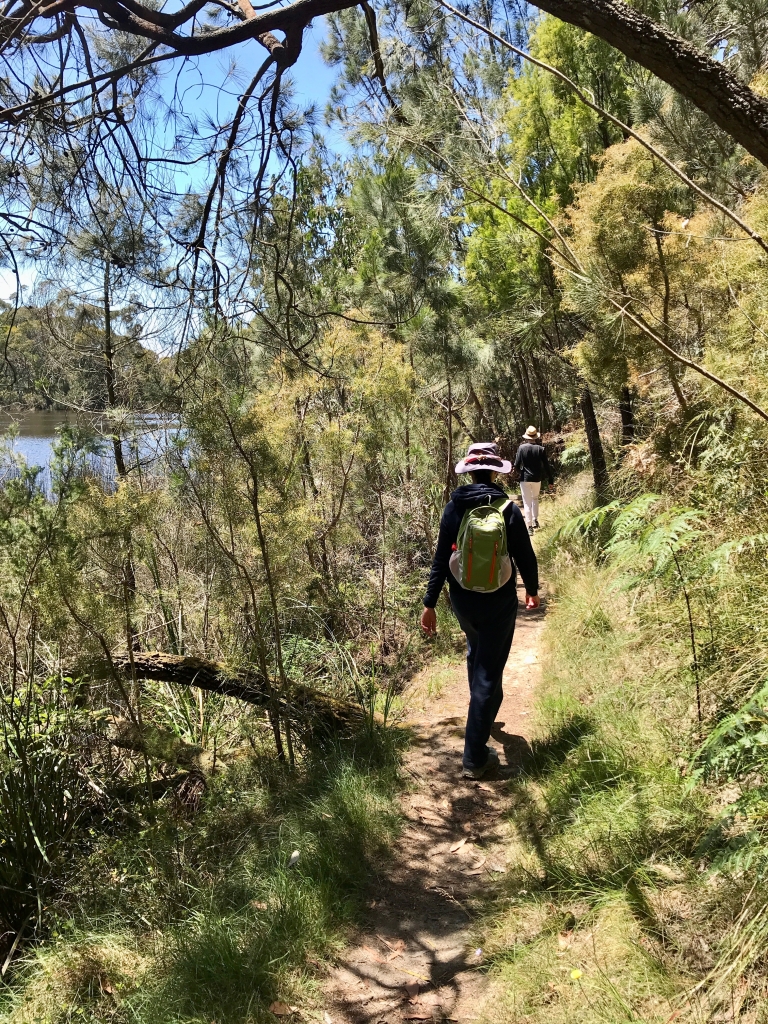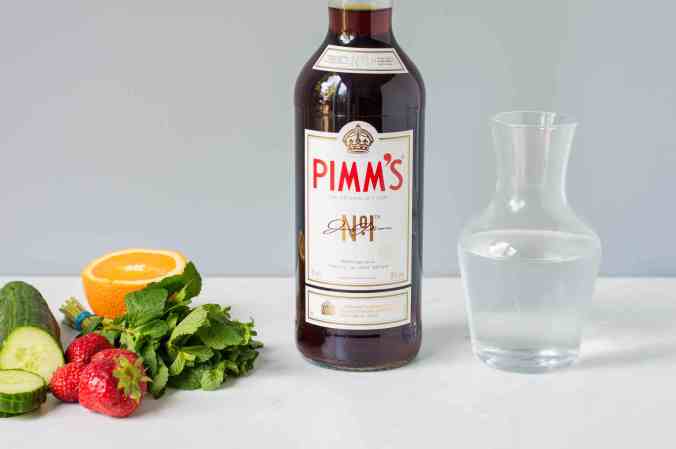I parked under the shade of a drowsing gum tree. It was warm, not yet hot. Not hot like it would be in a month or two. Still, even a Spring break encourages some shade seeking, especially when you’ll be hot when you get back to the car. There were two choices for the bushwalk. The shorter one was to a man-made lake with an odd name, OT Dam. The other was a circuit through the bush. Which one, I asked. You choose, she said. We both knew the boy wouldn’t care. It’s no longer correct to call him ‘the boy’ but I don’t know what other label to use; he’s still our boy. I said, let’s decide at the point where the routes diverge. So a few hundred metres later we stopped at a fork in the dirt track. Fire tracks; unsealed dirt roads about a truck width, usually scarred by rain channels that have hardened solid as concrete. Fire trucks use them if there’s a bushfire; walkers can use them too.
At the beginning the dam walk went uphill and the circuit walk gently down hill. Which one, I asked. You decide, she said, you’re… Her voice trailed off but I heard the end of the sentence. The oldest, the most unfit. Dam, I said, thinking the other two expected that as it was a shorter walk, scarcely a hike at all. We turned up the right arm of the ‘Y’ and my internal list continued up the first incline. The least enthusiastic about bushwalking, the dodgiest knees, the most likely to need a rest, the first to start puffing…
An explosion of red and green startled me out of this grey reverie; three rosellas bursting into flight with parakeet screeches. I smiled. Rosellas in the wild, such unlikely vibrancy in the olive-tan bush. I took a breath, focussed on the surroundings, the sun filtering through the canopy, the family up ahead. Go at your own pace, I called. Just wait for me at some point. Pride or frustration would have silenced that request a while back but now it just seemed like stating the obvious. And OK. I’m here doing this, we’re together, it’s a terrific late Spring morning.
A mountain biker passed us, moving fast uphill. Jeez, I thought, that’s fitness. There was a sign indicating a prepared mountain bike track. I stood on the launch platform and gazed down an almost vertical descent; boulders, gullies, sawn-off tree trunks, it was impossible to even detect a path down. The sign at the top warning of mortal danger did not seem far-fetched. As you age, you forget what it is to be intrepid; a heightened sense of risk is shadowed by a reduction in self-belief and the young are labelled foolhardy to cover creeping caution. Maybe it’s only older people who read the warning signs. Like the one by the lake that cautioned about deep, cold water. Not to mention the hazards of downed trees and other entanglements. Danger every direction.
We found a boardwalk and ambled along it to enjoy the sun glinting off the water and the gentle murmurings of the bush. At the far end the earthen bank was covered with untidy foliage; much more like a natural lake than a dam. Another daring cyclist wove across the embankment wearing what looked like a motorcycle helmet; Darth Vader on a mountain bike. We took a family selfie with the water in the background. I said we should do the other walk as well, perhaps my voice caring more enthusiasm than I actually felt. Still, it was good to find enough in the legs to want more.
A shipping container plonked by the side of the track had a sign, ‘Peninsula Mountain Biking Club’. That explained the tyre marks, I guess. But what did they keep in the container? Not those fancy two-wheelers with their shock absorber forks and forty-eight gears, surely. Perhaps it was a mini-hospital for treating cuts and lacerations, sprains and bruises. Ride fast over such terrain, you’re going to come to grief at some point. Later we saw a lizard lying in the middle of the track. I wonder if it knows it’s on a bike track, son mused. Might end up as two lizards. We chuckled, the lizard didn’t move. There’s danger even in lying motionless in one place, I thought.
I wondered how far it was back to the car.


